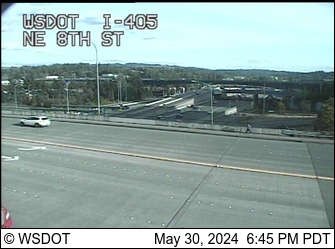|
Hong Kong, Aug 3 (IANS) Significant curbs on time spent outdoors and sharp rise in screen time during the coronavirus pandemic have led to the rise in childhood short-sightedness, also known as myopia, suggests a study.
The condition changes the shape of the eye, causing light rays to bend (refract) incorrectly, focusing images in front of, instead of on the surface of, the retina.
Short-sightedness in children matters because it puts them at risk of developing complications that increase the risk of irreversible impaired eyesight/blindness later in life, said researchers from the The Chinese University of Hong Kong.
To find out if enforced behavioural and lifestyle changes during the pandemic might have affected children's vision, the team studied the eyes of 1,793 children.
Around 1 in 5 (19.5 per cent) of the children in the Covid-19 group developed short-sightedness between January and August 2020, compared with around 1 in 3 (37 per cent) of those in the pre-Covid-19 group over a period of three years.
The numbers of new cases of short-sightedness were higher among children in the Covid-19 group.
The estimated 1-year incidence of short-sightedness was 28 per cent, 27 per cent, and 26 per cent, respectively, for 6, 7 and 8 year olds in the Covid-19 group, compared with 17 per cent, 16 per cent, and 15 per cent, respectively, for 6, 7, and 8 year olds in the pre-Covid-19 group.
These changes coincided with a reduction in the time the children spent outdoors, from around an hour and 15 minutes to around 24 minutes/day and an increase in screen time from around 2.5 hours/day to around 7 hours/day.
This is an observational study, and as such, can't establish cause, added to which the research included questionnaire data, which rely on recall. And the findings might not reflect the impact of Covid-19 in other parts of the world, where social distancing, quarantine, and school closure policies may be different, cautioned the researchers.
Nevertheless, "despite all these insurmountable study limitations, our initial results still show an alarming myopia progression that warrants appropriate remedial action," said Dr Jason C.S. Yam, from the varsity's Department of Ophthalmology and Visual Sciences.
"(They) serve to warn eye care professionals, and also policy makers, educators and parents, that collective efforts are needed to prevent childhood myopia, a potential public health crisis as a result of Covid-19," he added.
--IANS
rvt/vd
Copyright and Disclaimer: All news and images appearing in our news section, search engines and social media are provided by IANS. If you face any issues related to the content/images, please contact our news service provider directly. We are not liable/responsible for any content/images related to the news service provider.
|




.jpeg)

.jpeg)



